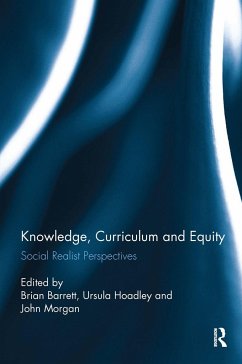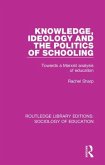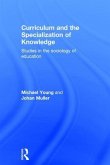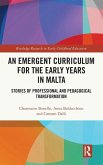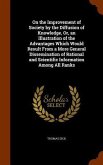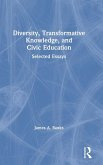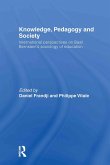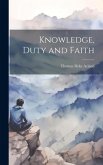Knowledge, Curriculum and Equity
Social Realist Perspectives
Herausgeber: Barrett, Brian; Morgan, John; Hoadley, Ursula
Knowledge, Curriculum and Equity
Social Realist Perspectives
Herausgeber: Barrett, Brian; Morgan, John; Hoadley, Ursula
- Gebundenes Buch
- Merkliste
- Auf die Merkliste
- Bewerten Bewerten
- Teilen
- Produkt teilen
- Produkterinnerung
- Produkterinnerung
Knowledge, Curriculum and Equity: Social Realist Perspectives contains the work of the third in a series of symposia on the 'social realist' case for 'knowledge' in the educational curriculum. The strengths and gaps of the approach are identified and there is critical recognition of the need to incrementally extend the theories through empirical study.
Andere Kunden interessierten sich auch für
![Knowledge, Ideology and the Politics of Schooling Knowledge, Ideology and the Politics of Schooling]() Rachel SharpKnowledge, Ideology and the Politics of Schooling153,99 €
Rachel SharpKnowledge, Ideology and the Politics of Schooling153,99 €![Curriculum and the Specialization of Knowledge Curriculum and the Specialization of Knowledge]() Michael YoungCurriculum and the Specialization of Knowledge198,99 €
Michael YoungCurriculum and the Specialization of Knowledge198,99 €![An Emergent Curriculum for the Early Years in Malta An Emergent Curriculum for the Early Years in Malta]() Charmaine BonelloAn Emergent Curriculum for the Early Years in Malta197,99 €
Charmaine BonelloAn Emergent Curriculum for the Early Years in Malta197,99 €![On the Improvement of Society by the Diffusion of Knowledge, Or, an Illustration of the Advantages Which Would Result From a More General Disseminatio On the Improvement of Society by the Diffusion of Knowledge, Or, an Illustration of the Advantages Which Would Result From a More General Disseminatio]() Thomas DickOn the Improvement of Society by the Diffusion of Knowledge, Or, an Illustration of the Advantages Which Would Result From a More General Disseminatio44,99 €
Thomas DickOn the Improvement of Society by the Diffusion of Knowledge, Or, an Illustration of the Advantages Which Would Result From a More General Disseminatio44,99 €![Diversity, Transformative Knowledge, and Civic Education Diversity, Transformative Knowledge, and Civic Education]() James A. BanksDiversity, Transformative Knowledge, and Civic Education198,99 €
James A. BanksDiversity, Transformative Knowledge, and Civic Education198,99 €![Knowledge, Pedagogy and Society Knowledge, Pedagogy and Society]() Knowledge, Pedagogy and Society209,99 €
Knowledge, Pedagogy and Society209,99 €![Knowledge, Duty and Faith Knowledge, Duty and Faith]() Thomas Dyke AclandKnowledge, Duty and Faith37,99 €
Thomas Dyke AclandKnowledge, Duty and Faith37,99 €-
-
-
Knowledge, Curriculum and Equity: Social Realist Perspectives contains the work of the third in a series of symposia on the 'social realist' case for 'knowledge' in the educational curriculum. The strengths and gaps of the approach are identified and there is critical recognition of the need to incrementally extend the theories through empirical study.
Hinweis: Dieser Artikel kann nur an eine deutsche Lieferadresse ausgeliefert werden.
Hinweis: Dieser Artikel kann nur an eine deutsche Lieferadresse ausgeliefert werden.
Produktdetails
- Produktdetails
- Verlag: Taylor & Francis
- Seitenzahl: 240
- Erscheinungstermin: 27. Juli 2017
- Englisch
- Abmessung: 229mm x 155mm x 20mm
- Gewicht: 476g
- ISBN-13: 9781138083530
- ISBN-10: 1138083534
- Artikelnr.: 48847469
- Herstellerkennzeichnung
- Libri GmbH
- Europaallee 1
- 36244 Bad Hersfeld
- gpsr@libri.de
- Verlag: Taylor & Francis
- Seitenzahl: 240
- Erscheinungstermin: 27. Juli 2017
- Englisch
- Abmessung: 229mm x 155mm x 20mm
- Gewicht: 476g
- ISBN-13: 9781138083530
- ISBN-10: 1138083534
- Artikelnr.: 48847469
- Herstellerkennzeichnung
- Libri GmbH
- Europaallee 1
- 36244 Bad Hersfeld
- gpsr@libri.de
Brian Barrett is associate professor in the Foundations and Social Advocacy Department and graduate research coordinator with SUNY Cortland's Urban Recruitment of Educators program. Ursula Hoadley is an Associate Professor working in the School of Education at the University of Cape Town. Her work focuses on pedagogy, curriculum and school organisation at the primary level, and she has published extensively both locally and internationally in these areas. John Morgan is Professor of Education at the University of Auckland. His research interests are in geographical education, the politics of the school curriculum and the cultural politics of schooling.
Foreword From 'social realism' to 'knowledge in education' Michael Young
Chapter 1. Introduction: social realist perspectives on knowledge,
curriculum and equity John Morgan, Ursula Hoadley and Brian Barrett
Section 1. Knowledge, curriculum and the social realist project
Chapter 2. Connecting knowledge to democracy Elizabeth Rata
Chapter 3. For knowledge - but what knowledge? Confronting social realism's
curriculum problem John Morgan and David Lambert
Chapter 4. History as knowledge: humanities challenges for a
knowledge-based curriculum Lyn Yates
Section 2. Knowledge and the structuring of the curriculum
Chapter 5. A theoretical model of curriculum design: 'Powerful Knowledge'
and '21st Century Learning' Graham McPhail and Elizabeth Rata
Chapter 6. Pedagogic modality and structure in the recontextualising field
of curriculum studies: the South African case Johan Muller and Ursula
Hoadley
Chapter 7. Conceptions of knowledge in history teaching Barbara Ormond
Section 3. Curriculum structure and its effects
Chapter 8. Teacher change in a changing moral order: learning from Durkheim
Lynne Slonimsky
Chapter 9. Delocating and relocating knowledge: the dynamics of curriculum
change in Singapore Leonel Lim
Chapter 10. Recontextualisation and professionalising regions Jim Hordern
Section 4. Pedagogy and the structuring of knowedge
Chapter 11. Flipping the script: teachers' perceptions of tensions and
possibilities within a scripted curriculum Brian Barrett, Anne Burns Thomas
and Maria Timberlake
Chapter 12. Scripted lesson plans - what is visible and invisible in
visible pedagogy? Yael Shalem
Chapter 13. Pedagogic modalities and the ritualising of pedagogy Zain Davis
and Paula Ensor
Chapter 1. Introduction: social realist perspectives on knowledge,
curriculum and equity John Morgan, Ursula Hoadley and Brian Barrett
Section 1. Knowledge, curriculum and the social realist project
Chapter 2. Connecting knowledge to democracy Elizabeth Rata
Chapter 3. For knowledge - but what knowledge? Confronting social realism's
curriculum problem John Morgan and David Lambert
Chapter 4. History as knowledge: humanities challenges for a
knowledge-based curriculum Lyn Yates
Section 2. Knowledge and the structuring of the curriculum
Chapter 5. A theoretical model of curriculum design: 'Powerful Knowledge'
and '21st Century Learning' Graham McPhail and Elizabeth Rata
Chapter 6. Pedagogic modality and structure in the recontextualising field
of curriculum studies: the South African case Johan Muller and Ursula
Hoadley
Chapter 7. Conceptions of knowledge in history teaching Barbara Ormond
Section 3. Curriculum structure and its effects
Chapter 8. Teacher change in a changing moral order: learning from Durkheim
Lynne Slonimsky
Chapter 9. Delocating and relocating knowledge: the dynamics of curriculum
change in Singapore Leonel Lim
Chapter 10. Recontextualisation and professionalising regions Jim Hordern
Section 4. Pedagogy and the structuring of knowedge
Chapter 11. Flipping the script: teachers' perceptions of tensions and
possibilities within a scripted curriculum Brian Barrett, Anne Burns Thomas
and Maria Timberlake
Chapter 12. Scripted lesson plans - what is visible and invisible in
visible pedagogy? Yael Shalem
Chapter 13. Pedagogic modalities and the ritualising of pedagogy Zain Davis
and Paula Ensor
Foreword From 'social realism' to 'knowledge in education' Michael Young
Chapter 1. Introduction: social realist perspectives on knowledge,
curriculum and equity John Morgan, Ursula Hoadley and Brian Barrett
Section 1. Knowledge, curriculum and the social realist project
Chapter 2. Connecting knowledge to democracy Elizabeth Rata
Chapter 3. For knowledge - but what knowledge? Confronting social realism's
curriculum problem John Morgan and David Lambert
Chapter 4. History as knowledge: humanities challenges for a
knowledge-based curriculum Lyn Yates
Section 2. Knowledge and the structuring of the curriculum
Chapter 5. A theoretical model of curriculum design: 'Powerful Knowledge'
and '21st Century Learning' Graham McPhail and Elizabeth Rata
Chapter 6. Pedagogic modality and structure in the recontextualising field
of curriculum studies: the South African case Johan Muller and Ursula
Hoadley
Chapter 7. Conceptions of knowledge in history teaching Barbara Ormond
Section 3. Curriculum structure and its effects
Chapter 8. Teacher change in a changing moral order: learning from Durkheim
Lynne Slonimsky
Chapter 9. Delocating and relocating knowledge: the dynamics of curriculum
change in Singapore Leonel Lim
Chapter 10. Recontextualisation and professionalising regions Jim Hordern
Section 4. Pedagogy and the structuring of knowedge
Chapter 11. Flipping the script: teachers' perceptions of tensions and
possibilities within a scripted curriculum Brian Barrett, Anne Burns Thomas
and Maria Timberlake
Chapter 12. Scripted lesson plans - what is visible and invisible in
visible pedagogy? Yael Shalem
Chapter 13. Pedagogic modalities and the ritualising of pedagogy Zain Davis
and Paula Ensor
Chapter 1. Introduction: social realist perspectives on knowledge,
curriculum and equity John Morgan, Ursula Hoadley and Brian Barrett
Section 1. Knowledge, curriculum and the social realist project
Chapter 2. Connecting knowledge to democracy Elizabeth Rata
Chapter 3. For knowledge - but what knowledge? Confronting social realism's
curriculum problem John Morgan and David Lambert
Chapter 4. History as knowledge: humanities challenges for a
knowledge-based curriculum Lyn Yates
Section 2. Knowledge and the structuring of the curriculum
Chapter 5. A theoretical model of curriculum design: 'Powerful Knowledge'
and '21st Century Learning' Graham McPhail and Elizabeth Rata
Chapter 6. Pedagogic modality and structure in the recontextualising field
of curriculum studies: the South African case Johan Muller and Ursula
Hoadley
Chapter 7. Conceptions of knowledge in history teaching Barbara Ormond
Section 3. Curriculum structure and its effects
Chapter 8. Teacher change in a changing moral order: learning from Durkheim
Lynne Slonimsky
Chapter 9. Delocating and relocating knowledge: the dynamics of curriculum
change in Singapore Leonel Lim
Chapter 10. Recontextualisation and professionalising regions Jim Hordern
Section 4. Pedagogy and the structuring of knowedge
Chapter 11. Flipping the script: teachers' perceptions of tensions and
possibilities within a scripted curriculum Brian Barrett, Anne Burns Thomas
and Maria Timberlake
Chapter 12. Scripted lesson plans - what is visible and invisible in
visible pedagogy? Yael Shalem
Chapter 13. Pedagogic modalities and the ritualising of pedagogy Zain Davis
and Paula Ensor

